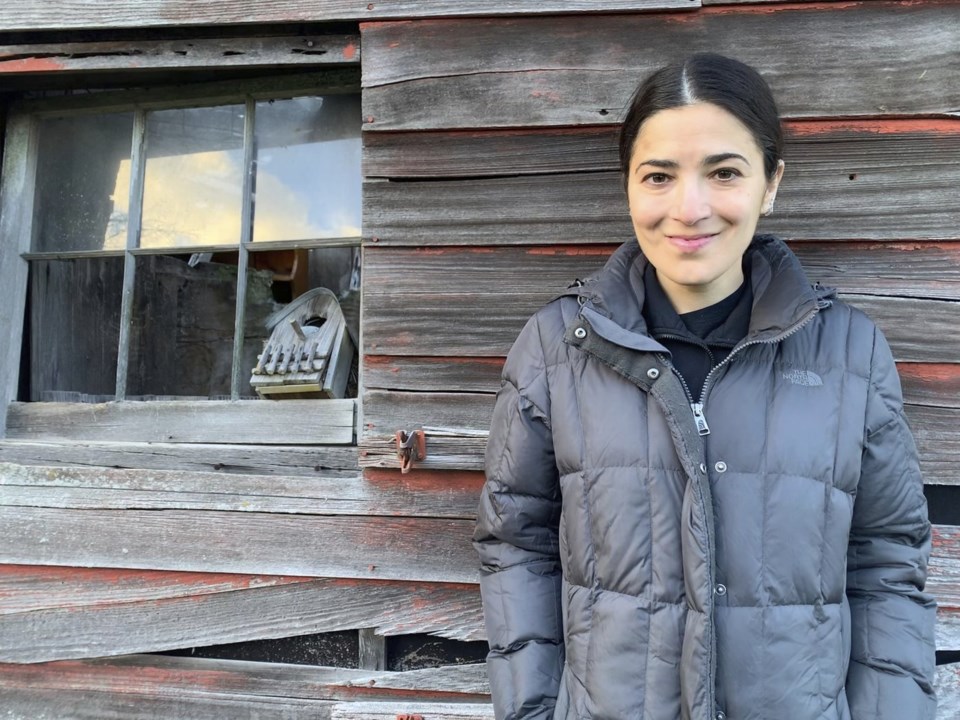Emily Kramer-Golinkoff can’t get enough oxygen with each breath. Advanced makes even simple things like walking or showering arduous and exhausting.
She has the most common fatal in the U.S., which afflicts 40,000 Americans. But her case is caused by a rare , so medications that work for 90% of people with cystic fibrosis won’t help her.
The same dynamic plays out in other genetic conditions. Stunning advances in genetic science have revealed the subtle, insidious culprits behind these brutal diseases and have started paving the way for treatments. But patients with these exceedingly rare mutations have fewer options and poorer prospects than those with more typical forms of these diseases — and many are now pinning hopes on experimental gene therapies.
“We feel such pure joy for our friends who have been lifted from this sinking ship,” said Kramer-Golinkoff, 40. “But we just feel so eager and desperate to join them. It’s really hard to be in this minority of people left behind.”
It's not just science that is working against these patients, it's market forces. Drug companies are naturally going to look for medications that target the most common mutations.
“You need a sufficiently large number of patients in a major market in order for a company to be interested in going forward,” said Dr. Kiran Musunuru, a University of Pennsylvania gene editing expert. What it amounts to, he says, is "mutational discrimination.”
Charities – including a nonprofit Kramer-Golinkoff co-founded called Emily’s Entourage – are trying to overcome this barrier. Fundraising efforts have helped jump-start gene therapy that could help patients regardless of mutation.
While it likely won't be available for years, “just to have these therapies in trials provides so much hope,” Kramer-Golinkoff said.
Current treatments for genetic diseases don't help everyone
Kramer-Golinkoff was just six weeks old when she was diagnosed with cystic fibrosis, which causes thick, sticky mucus to build up in the body.
It occurs when the so-called CFTR protein is not made or not made correctly, allowing chloride to become trapped in cells, meaning water can't keep the cell's surface hydrated. Mucus buildup can lead to damage, blockages and infections in the lungs and other affected organs.
“As I’ve gotten older … my CF has gotten worse, despite all my best efforts to delay it,” Kramer-Golinkoff said.
Before her illness got so bad, she was able to earn a master’s degree in bioethics at the University of Pennsylvania, work, travel and spend time with friends. But she eventually developed CF-related diabetes and other problems. She’s prone to infections, and since the pandemic has lived with her parents in isolation in Greater Philadelphia.
“CF is a real monster of a disease,” she said.
Meanwhile, others with the condition have seen vast improvements in their health with “CFTR modulator” therapies that work for people with the most common mutation, correcting the malfunctioning protein. Research shows they dramatically improve lung function, respiratory symptoms and patients’ overall quality of life.
Besides not working for people with rare mutations, these treatments are unavailable to patients whose disease-causing mutations aren't known or fully understood. Mutations may be unknown because of a lack of genetic testing in places such as developing nations, or understudied because they are uncommon or difficult to detect.
Genetic testing companies such as GeneDx have made some headway in screening more people of diverse backgrounds, but inequities remain.
For example, comprehensive data about cystic fibrosis is scarce among African populations – affecting people who live on the continent as well as those who trace their ancestry there. Black cystic fibrosis patients are more likely than their white counterparts to be among the 10% who don’t benefit from modulator therapies.
Can a gene therapy work no matter the mutation?
While there’s little chance of changing market dynamics, researchers said, one solution is to develop “mutation agnostic” gene therapies targeting all patients with a disease. This approach is being tried in diseases of the retina as well as cystic fibrosis.
“There’s a huge push to develop these therapies," said Dr. Garry Cutting of the Johns Hopkins Cystic Fibrosis Center.
Most of the 14 experimental gene therapies in the for the disease aim to help patients with any mutation, the Cystic Fibrosis Foundation says, delivering a new, correct version of the CFTR gene to cells. Getting correct copies of the CFTR gene would enable cells to make normal proteins no matter what mutation causes a patient to have no, or not enough, functional CFTR proteins.
One treatment, partially funded by the foundation, is sponsored by Spirovant Sciences, a company Emily’s Entourage provided seed money to launch. The first patient received the therapy in November in a 53-week clinical trial at Columbia University that aims to determine if it's safe and how long it stays in the lung.
Kramer-Golinkoff said she’s more optimistic about her future these days, even as her own illness worsens. At this point, she’s living with 30% lung function, suffers from kidney issues and has high blood pressure in her lungs. She depends on insulin for her diabetes and takes numerous pills daily.
“You have to make really conscientious choices ... throughout the day on how to use your limited energy. And that’s really difficult to do when you have big dreams and important work and life to live,” she said.
“We’re incredibly excited about the promise of gene therapies. They can’t come soon enough.”
___
The Associated Press Health and Science Department receives support from the Howard Hughes Medical Institute’s Science and Educational Media Group and the Robert Wood Johnson Foundation. The AP is solely responsible for all content.
Laura Ungar, The Associated Press




